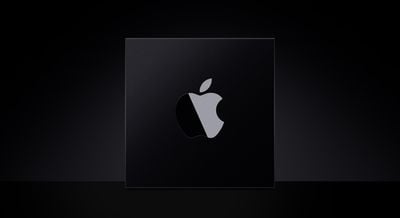Apple Chip Supplier Preparing to Begin Production of 2nm Chips as Early as 2025
Apple could adopt the 2nm process for its iPhone and Mac chips as early as 2025 as the company's main chip supplier, TSMC, has set in motion a plan to produce that process in the early parts of that year, DigiTimes reports.

All of Apple's latest chips feature the 5nm process, including the A15 Bionic in the iPhone 13 series and the entire M1 Apple silicon line. According to a new DigiTimes report today, TSMC will begin mass production of 3nm chips later this year with 2nm following in 2025 with Apple and Intel being among the first to use the newer technology.
TSMC has set a timetable to move its 2nm GAA process to production in 2025 while commercializing its 3nm FInFET process with improved yield rates in the second half of 2022, with Apple and Intel among the first clients to adopt both nodes, further consolidating its dominance in the advanced foundry sector, according to industry sources.
A report from last year claimed that the next iPad Pro, expected to be announced later this year, will feature a 3nm process. The current iPad Pro features the M1 chip and the 2022 version is expected to include Apple's all-new "M2" chip. The 3nm process technology features performance improvements of up to 15% while being at least 25% less battery-hungry, according to TSMC.
Popular Stories
While the iOS 26.3 Release Candidate is now available ahead of a public release, the first iOS 26.4 beta is likely still at least a week away. Following beta testing, iOS 26.4 will likely be released to the general public in March or April.
Below, we have recapped known or rumored iOS 26.3 and iOS 26.4 features so far.
iOS 26.3
iPhone to Android Transfer Tool
iOS 26.3 makes it easier...
Apple recently acquired Israeli startup Q.ai for close to $2 billion, according to Financial Times sources. That would make this Apple's second-biggest acquisition ever, after it paid $3 billion for the popular headphone maker Beats in 2014.
This is also the largest known Apple acquisition since the company purchased Intel's smartphone modem business and patents for $1 billion in 2019....
In 2022, Apple introduced a new Apple Home architecture that is "more reliable and efficient," and the deadline to upgrade and avoid issues is fast approaching.
In an email this week, Apple gave customers a final reminder to upgrade their Home app by February 10, 2026. Apple says users who do not upgrade may experience issues with accessories and automations, or lose access to their smart...
New M5 Pro and M5 Max MacBook Pro models are slated to launch in the near future, according to information shared with MacRumors by an Apple Premium Reseller.
Subscribe to the MacRumors YouTube channel for more videos.
The third-party Apple retailer said that MacBook Pro stock is very low currently because there is an imminent new product introduction. Apple typically coordinates supply with...
The calendar has turned to February, and a new report indicates that Apple's next product launch is "imminent," in the form of new MacBook Pro models.
"All signs point to an imminent launch of next-generation MacBook Pros that retain the current form factor but deliver faster chips," Bloomberg's Mark Gurman said on Sunday. "I'm told the new models — code-named J714 and J716 — are slated...
![]()




















